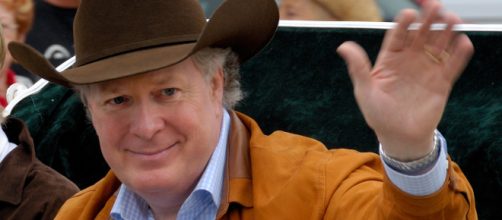Jean Charest has at times been among the most prominent political figures in Canada. He's been a key official at the federal level and in his native Quebec. In the latter, he would hold the top elected office in the province.
Canadian Conservatives are expected to elect a new leader in the not-too-distant future. Erin O'Toole recently left the job, with Candice Bergen temporarily fulfilling the role.
Charest apparently 'inclined' to make a run for leadership
Jean Charest could soon officially enter the race to become Canadian Conservatives' next leader.
The potential move has already been given support by several members of the Canadian Parliament, indicates Global News.
An exact timeline for the leadership election remains unclear. Charest's decision on entering the race hangs on what the election rules might be, reports The Globe and Mail.
Following the exit of O'Toole from the leadership, possible successors quickly began making moves. Including Pierre Poilievre, a former Cabinet minister under Prime Minister Stephen Harper.
Other possible leadership candidates include Peter MacKay. MacKay was one of Harper's most prominent Cabinet members. His roles included serving as minister of foreign affairs, minister of national defence and minister of justice.
Elmer MacKay, Peter's father, served in the Cabinets of Prime Ministers Joe Clarke and Brian Mulroney. Mulroney's daughter, Caroline, is also thought to be a potential candidate. The younger Mulroney has been a powerful politician at the provincial level in Ontario.
Charest's political career began during the 1980s
Jean Charest was first elected to the Canadian Parliament in 1984. He was elected from the riding of Sherbrooke in southern Quebec. He would go on to perform a number of duties under Prime Minister Harper. Charest eventually briefly took on the role of deputy prime minister during the tenure of Prime Minister Kim Campbell.
Afterward, Charest served as leader of what was then the Progressive Conservative Party of Canada.
But he would eventually set his sights more specifically on politics in Quebec.
In 1998, he became leader of the Quebec Liberal Party. Despite what the name might imply, the party is actually a centrist one. It split off from the national Liberal Party of Canada during the 1950s. This also effectively made him the leader of the opposition in the National Assembly of Quebec. Of which Charest also became a member of that year.
Charest led the Quebec Liberal Party to three election victories in the province. As such, he became the premier of Quebec for the ensuing time.
A decision to increase tuition fees in Quebec would become disastrous for Charest and his party. Leading to highly-publicized demonstrations in the province. In an election that year, Charest's party was defeated. He himself losing his own seat in the National Assembly in the process.


